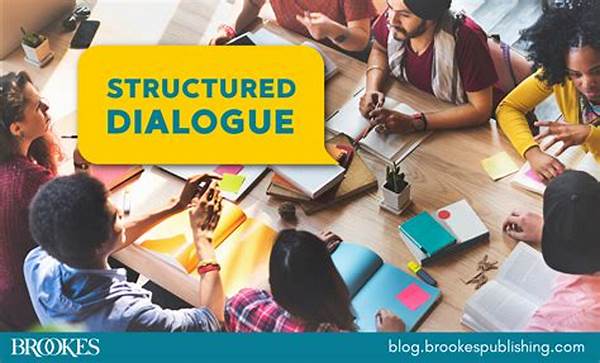Hey there, friend! Today we’re diving into something truly uplifting: gospel workshops and inclusive dialogue. It’s a mouthful, right? But at its core, it’s all about bringing people together through music and open conversations. Let’s explore how these workshops are changing lives and fostering understanding in our communities!
Read More : Best Gospel Songs For Streaming
The Power of Gospel Workshops and Inclusive Dialogue
Imagine a room filled with joyful noise, where people from all walks of life come together to learn, sing, and share. That’s the magic of gospel workshops. These workshops aren’t just about perfecting harmony; they’re about creating a welcoming space where everyone feels included. And when we talk about inclusive dialogue, it’s much the same – it’s about engaging in conversations where every voice is heard and valued. In gospel workshops, participants learn not only about music but also about empathy and understanding. The same applies to inclusive dialogue; it’s all about bridging gaps and building connections. It’s amazing how something as simple as singing or talking can bring people closer, isn’t it?
Why Gospel Workshops and Inclusive Dialogue Matter
1. Fostering Unity: Gospel workshops and inclusive dialogue create a sense of community, allowing individuals to unite, share experiences, and build lasting relationships.
2. Promoting Diversity: These platforms celebrate diversity, welcoming people from different backgrounds to share their unique perspectives.
3. Encouraging Growth: Participants often find personal growth and inspiration through gospel workshops and inclusive dialogue, gaining new insights and skills.
4. Building Empathy: By engaging in open conversations and collaborative music-making, individuals develop empathy and understanding for others.
5. Creating Change: Gospel workshops and inclusive dialogue can spark meaningful change, challenging stereotypes and breaking down barriers.
Gospel Workshops and Inclusive Dialogue: A Shared Experience
Have you ever attended a gospel workshop? It’s not just about learning notes and rhythm; it’s an experience that transcends music itself. Picture yourself surrounded by people who are all there for the same purpose: to connect genuinely and meaningfully. Inclusive dialogue works the same way—it’s all about listening to learn instead of just to reply. Whether in a musical setting or a conversational space, these experiences teach us the importance of empathy and acceptance. They remind us that everyone has a story worth listening to and a voice worth hearing. Sounds like something the world could use more of, right?
Breaking Down Gospel Workshops and Inclusive Dialogue
1. Community Spirit: Gospel workshops and inclusive dialogue foster a sense of belonging. It feels like being part of a big, harmonious family.
2. Musical and Verbal Exchange: Both involve sharing—whether it’s a new harmony or a story, it’s about connection.
3. Learning Together: These spaces provide opportunities to learn from one another, exploring different cultures and viewpoints.
4. Safe Spaces: They create environments where people can express themselves without fear of judgment.
5. Harmony in Diversity: Celebrate what makes each participant unique, seeing it as strength rather than division.
Read More : Community Gospel Outreach Through Radio
6. Building Bridges: These initiatives help us connect despite perceived differences.
7. Insightful Conversations: Dialogue opens up new perspectives, a bit like finding a hidden note in a gospel tune.
8. Resonating Beyond Workshops: The lessons learned resonate beyond the workshop, encouraging kindness and unity in daily life.
9. Breaking Down Barriers: Encouraging interaction between diverse individuals helps dismantle preconceptions and stereotypes.
10. Joyful Expression: Participants experience the joy of expression, whether through song or dialogue.
Embracing Gospel Workshops and Inclusive Dialogue
Stepping into a gospel workshop is like stepping into a haven of acceptance and love. You’re welcomed with open arms and open hearts, ready to go on a musical journey that transcends language and culture. Inclusive dialogue holds similar magic—you get to dive into discussions that matter, where everyone’s opinion holds weight and every voice is important. Imagine a world where these workshops and dialogues are spreading like wildfire, connecting people from different backgrounds, fostering understanding, and promoting peace. It’s incredible how much power can be found in a simple song or a heartfelt conversation, isn’t it? They remind us that no matter where we come from, we all share the same set of hopes, dreams, and fears.
The Role of Gospel Workshops and Inclusive Dialogue in Society
In today’s world, there’s something truly special about gospel workshops and inclusive dialogue. They’re like beacons of hope, offering spaces where people can come together, embrace their differences, and learn from one another. These workshops and dialogues welcome people into a positive environment of sharing and listening, teaching us to approach each interaction with an open heart and mind. When more of us engage in these experiences, we nurture a society that values diversity and inclusion. They’re more than just gatherings—they’re movements toward a more empathetic and understanding society. In these spaces, there are no labels or judgments, just the shared experience of being human.
Summary of Gospel Workshops and Inclusive Dialogue
To wrap it all up, gospel workshops and inclusive dialogue are two incredible experiences aimed at uniting communities through art and open conversations. Delving into these spaces, individuals find themselves surrounded by a tapestry of diverse narratives, each adding a unique thread to the universal human story. Gospel workshops celebrate this unity, using the powerful medium of music to bridge cultural and personal differences. Meanwhile, inclusive dialogue complements this by providing a safe haven for sharing stories and perspectives, ensuring every voice is valued and heard.
Through gospel workshops, individuals not only discover their vocal capabilities but also develop a deeper sense of empathy. Inclusive dialogue, on the other hand, works like a gentle reminder of the beauty found in diverse opinions and experiences. Together, these practices form a harmonious symphony of understanding and acceptance. As they grow in popularity, they have the potential to slowly weave more communities together in a shared spirit of compassion and connection, fostering a world where unity is the melody we all sing to. Isn’t that just the kind of harmonious chord the world needs today?
